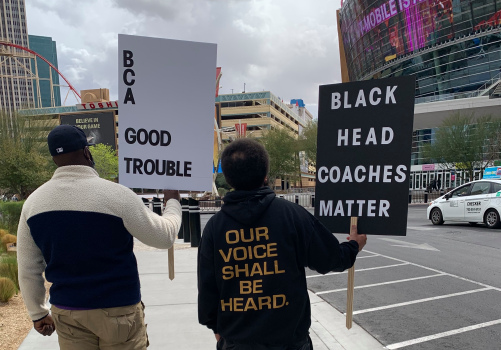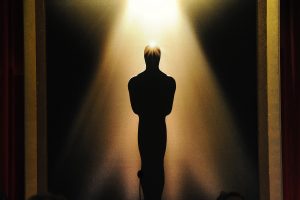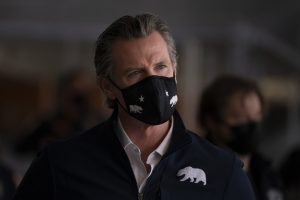What began as a man and his message has turned into a movement. And Lou Richie just might take it nationwide — at the Final Four.
The boys basketball coach at storied Oakland power Bishop O’Dowd was escorted away by security last weekend while protesting the lack of Black head coaches in the Pac-12 outside its conference tournament in Las Vegas. Since he returned home Sunday morning, the response, he said, “has blown my mind.”
Georgetown’s Patrick Ewing, Michigan’s Juwan Howard and Texas’ Shaka Smart have been just some of the high-profile college coaches to reach out in support. With their help, Richie hopes to recruit hundreds of college and high school coaches from around the country to bring the message to the Final Four, maybe in-person but most likely via Zoom, he said.
“I got text messages from so many coaches,” Richie said. “Not just Black coaches but a very diverse group of coaches who reached out and said hey, I love what you’re doing.”
That kind of recognition is nothing new for Richie — at least in the past year. Michelle Obama wrote him last fall in appreciation of his campaign that recruited coaches around the Bay Area, including the Warriors’ Steve Kerr, to register new voters.
He also enlisted longtime friend and Moreau Catholic coach Frank Knight in that effort, and Knight was supposed to accompany him to Las Vegas. Knight, however, had just returned from Hawaii, where he had been teaching remotely, and had to quarantine instead.
“Not one of the Pac-12 coaches is Black? That’s crazy,” Knight said. “You think about it, but I never really thought about it, you know what I mean?”
In the past, the longtime O’Dowd coach has preferred to keep his engagement within his immediate community by rebuilding playgrounds in East Oakland, feeding the homeless on Thanksgiving or simply running basketball camps.
Last spring, the protests over the killing of George Floyd ignited another fire in Richie and his growing community of coaches. He’s a new member on the executive board of the Black Coaches Association and also recently joined the organization 12 Inches Apart, both of which are fighting to open head coaching opportunities for candidates of color.
Through those Zoom meetings, Richie became close friends with Andre Chevalier, the head coach at Sierra Canyon just outside Los Angeles.
“Andre had an idea about six months ago,” Richie said. “Let’s not just end with George Floyd. Let’s continue to do something. So we did stuff with voter registration, then he said let’s do something around the Pac-12 tournament.”
When Ernie Kent and Wyking Jones were ousted at the end of the 2019 season, the Pac-12 lost its final two Black head coaches. They were replaced by two white coaches, just as Johnny Dawkins had been three years earlier at Stanford and Lorenzo Romar a year after that at Washington.
In the Pac-12, 64% of the athletes and 42% of the assistant coaches are people of color, according to Richie’s research, but none of its 12 head coaches.
In a statement, the Pac-12 said “its member universities have a long history of supporting diversity and inclusion. We are collectively committed to continuing to take steps to make progress in this critical area, including with respect to hiring minority coaches.”
Jones’ experience at Cal was representative of the wider problem, Richie said.
He overcame the first hurdle of being pigeonholed as an assistant coach but wasn’t given the opportunity to succeed as a head coach, according to Richie. Jones, who spent 21 years working as an assistant, was fired after going 16-47 in two seasons.
“I’m not saying that any of my friends or any of my non-friends who are head coaches of non-color don’t deserve their job, aren’t doing a good job or should be fired,” Richie said. “I’m not saying the next coach has to be someone of color. It’s just that the hiring process isn’t equitable and it isn’t transparent.”

So, that is how Lou Richie found himself outside of T-Mobile Arena carrying picket signs that read “Black Head Coaches Matter” and “Good Trouble,” an ode to the late congressman John Lewis.
Chevalier proposed picketing the Pac-12 offices in San Francisco. He didn’t realize Richie was serious about the trip to Vegas.
In the 11th hour, a pair of Sacramento coaches decided to join Richie in Las Vegas. Even with three of them — Richie, Denard Wilson and Jason Dillard — there was power in numbers. As soon as the other coaches departed, MGM security swiftly closed in on the O’Dowd coach.
“I walked out by myself, and that’s when the picketing ended,” Richie said.
MGM Resorts did not respond to a request for comment in time for publication. A spokesperson noted that signs that were mounted or larger than 11×17 are listed under prohibited items at T-Mobile Arena and the plaza outside.
Together, the three coaches were able to greet the teams from Cal, Stanford, UCLA and Oregon State, who responded positively, Richie said. Even the first woman to pass by said if she had a car, she’d honk, he said.
“That kind of validated what we were doing,” Richie said.
But shortly afterward, Wilson and Dillard had planes to catch. When Richie headed back to the MGM alone, he was met by a less friendly security guard.
“I said as soon as these next two teams come, I will be leaving immediately,” Richie said. “And he said, you can’t be out here.”
OK, can I just wait here until the team comes—
No, you can’t be out here.
Well, can I got into this parking structure and when the teams come out I come back out and walk to the hotel and I leave?
No, you cannot be out here.
At that time, a third security guard — a Black man, Richie said — walked over, “and his tone was, like, this is going to end right now.”
“I want to be clear, I’m not trying to have a physical confrontation, I’m not trying to go to jail, I’m not trying to get shot,” Richie told him.
There was one option, the security guard said, according to Richie: Put down the sign and don’t remove it from your room again.
“And if I don’t?” Richie responded.
They would evict him from the hotel, the guard said. And if he returned, he would be cited for trespassing.
“I had more to lose at that point than we had to gain,” Richie said later. “I hadn’t had any conflict resolution in the past year except for my wife disagreeing with me twice.”
Added Knight: “Lou likes to get into good trouble. It’s not equal, not fair, not right? He’s on that.”
The next day, Richie reached out to five coaching friends in the Pac-12 and Big West, which was playing its conference tournament at a separate Vegas casino that weekend.
All of them are white, and none believed it was wrong for Richie to raise the issue, he said.
“I asked them, did I upset you? They said no,” Richie said. “One said, selfishly, your information doesn’t help me as a Big West coach become a coach in the Pac-12.”
The trip to Vegas served multiple purposes for Richie. In between protesting the Pac-12 tournament, he was able to see his own former players in action in the Big West and make time for his first trip away with his wife Ashley Ash, whom he married last year.
Indianapolis, the site of this year’s Final Four, is a whole lot further away from home.
Still, Knight wouldn’t put it past his old friend.
“Knowing Lou Richie, he would end up at the Final Four with a picket sign,” Knight said with a laugh.
“I don’t necessarily know if I’m ready for another confrontation,” Richie said. “To be thrust back into that, I felt a lot of angst. I don’t know if I’m ready to go on a plane to Indiana.”
A virtual protest, though, with hundreds of college and high school coaches from across the country? That just might be in the works.




















